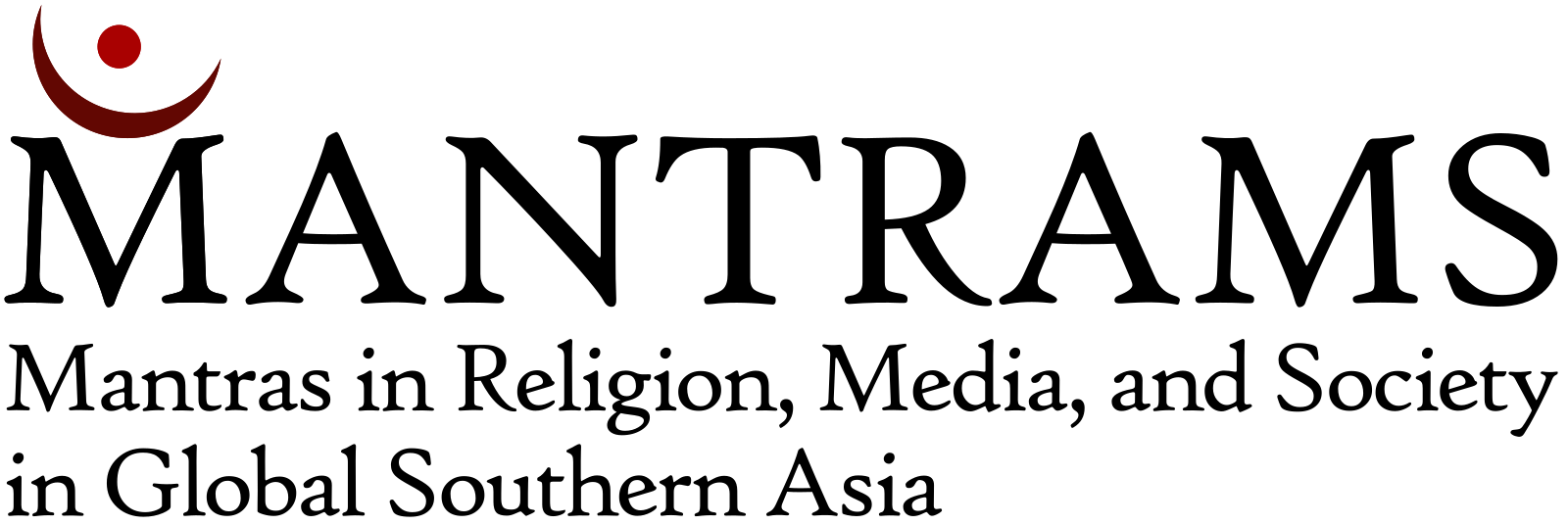Meet the Team
Our project has been developed in dialogue with communities of scholars and practitioners from Asia. Grounded in international collaborations, our research emphasizes respect for local communities, traditional lineages and custodians of cultural heritage.
MANTRAMS operates in close collaboration with Andrea Acri and the ERC project MANTRATANTRAM (ID 101124214). Further information at the MANTRATANTRAM website. Additionally, official collaborators are the Development Research Initiative (dRi) in Dhaka (Bangladesh). Others will follow shortly.
Borayin Larios
Corresponding Principal Investigator (cPI)
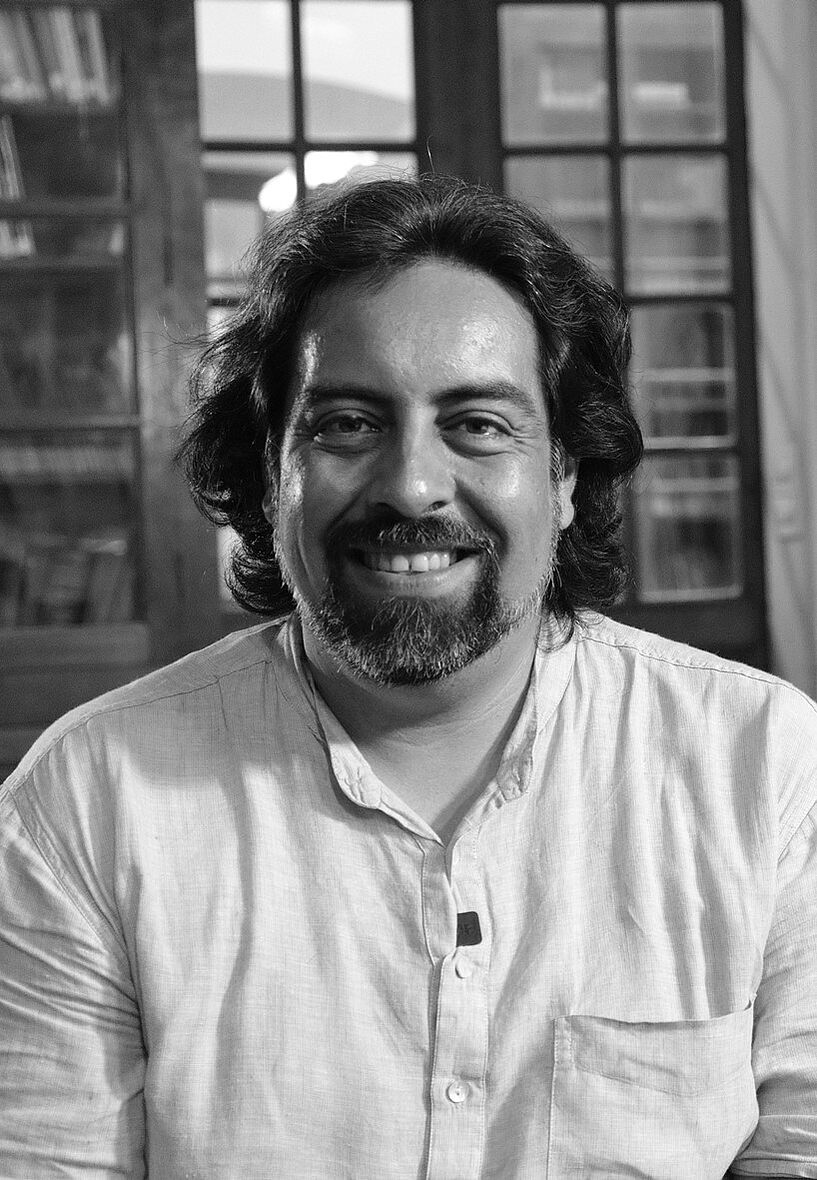
Borayin Larios is an Assistant Professor for Modern South Asian Studies at the University of Vienna. He leads Task Force 3 on the materiality of mantras, focusing on their visual, embodied, and digital forms across South Asia. His team’s research examines mantra-inscribed objects, their commodification, and their role in digital spaces.
Drawing on fieldwork in Mumbai and Pune and Digital Ethnography, Borayin explores the intersection of mantras, madia, and their broader roles in religion and society. As part of his involvement in the Task Force, he oversees the project’s exhibition, which will share key findings and offer an insightful exploration of the material culture of mantras.
Carola Lorea
Principal Investigator (PI)
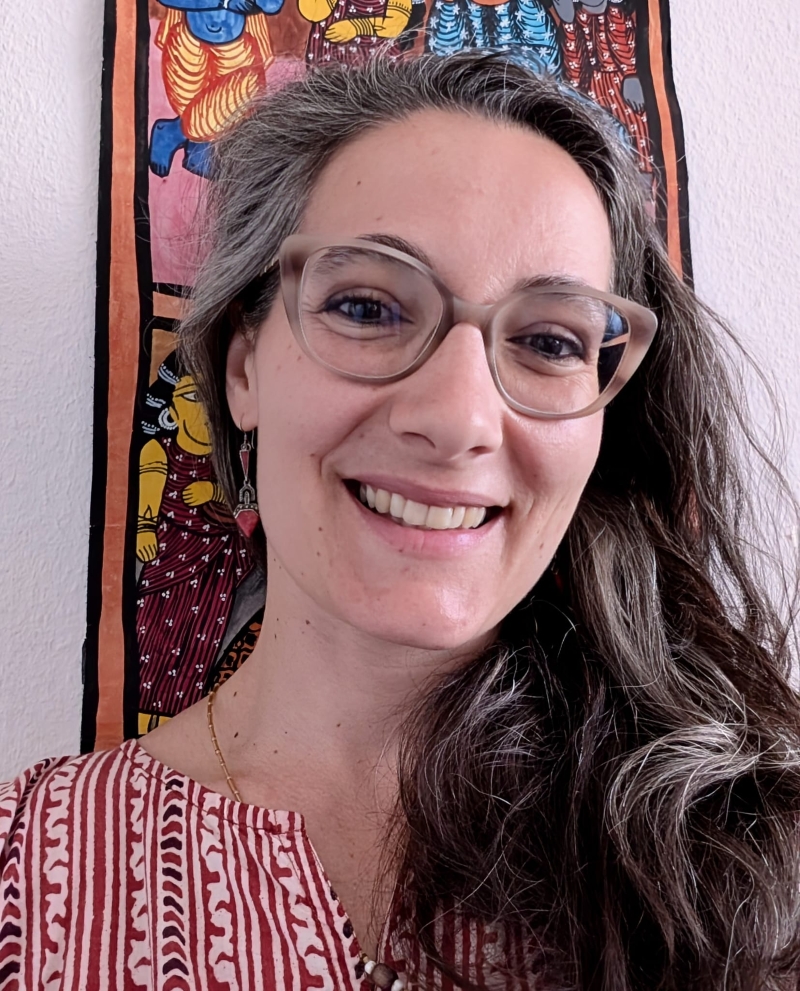
Carola Lorea holds the Junior Professorship “Rethinking Global Religion” at the University of Tübingen. She works on sound, oral traditions and popular religious movements in South Asia, particularly eastern India, Bangladesh and the Andaman Islands. Her research foregrounds the gendered body sensorium for the study of folklore, esoteric movements, Dalit religions and Tantric traditions.
Within MANTRAMS, she leads Task Force 2 on sonic efficacy to explore the intersection of sound, religion, and media, examining how mantras’ sonic dimensions are embedded in their social and cultural contexts.
Finnian Moore Gerety
Principal Investigator (PI)
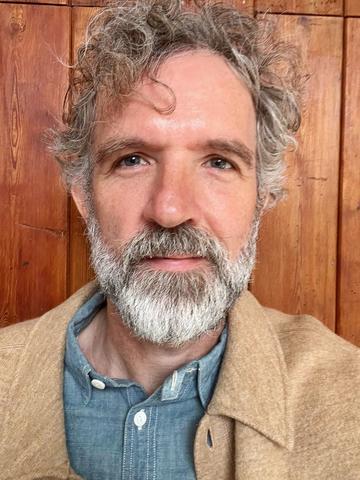
finn.mooregerety@
Finnian Moore Gerety is a Senior Research Fellow in the Faculty of Asian and Middle Eastern Studies at the University of Oxford and Research Fellow at Harris-Manchester College. He leads Task Force 1, which investigates the historical and textual foundations of mantras, focusing on their evolution and transmission within South Asian religious traditions.
His research spans the history of South Asian religions, Vedic texts and rituals, contemporary Hinduism in South India, mantra studies, yoga studies, and sound studies. He examines how mantras navigate between historical contexts and contemporary practices.
Andrea Acri
Lead Researcher

Andrea Acri (PhD Leiden University; Habil. Université Sorbonne Nouvelle) is an Associate Professor in Tantric Studies at the Religious Studies section of the École Pratique des Hautes Études (EPHE), PSL University in Paris. His research explores Tantric Traditions across South and Southeast Asia and their maritime circulation across the wider region of Monsoon Asia through the disciplinary perspective of philology, with insights from art history.
In the MANTRAMS Project, he collaborates with PI Finn Gerety in the investigation, employing historical and philological methods, of the sources of mantras and the mapping of their transregional and transcultural streams across Asia. Besides his role in MANTRAMS, he is Principal Investigator of the project MANTRATANTRAM, ERC Consolidator grant (2024–2029).
Gudrun Bühnemann
Senior Researcher
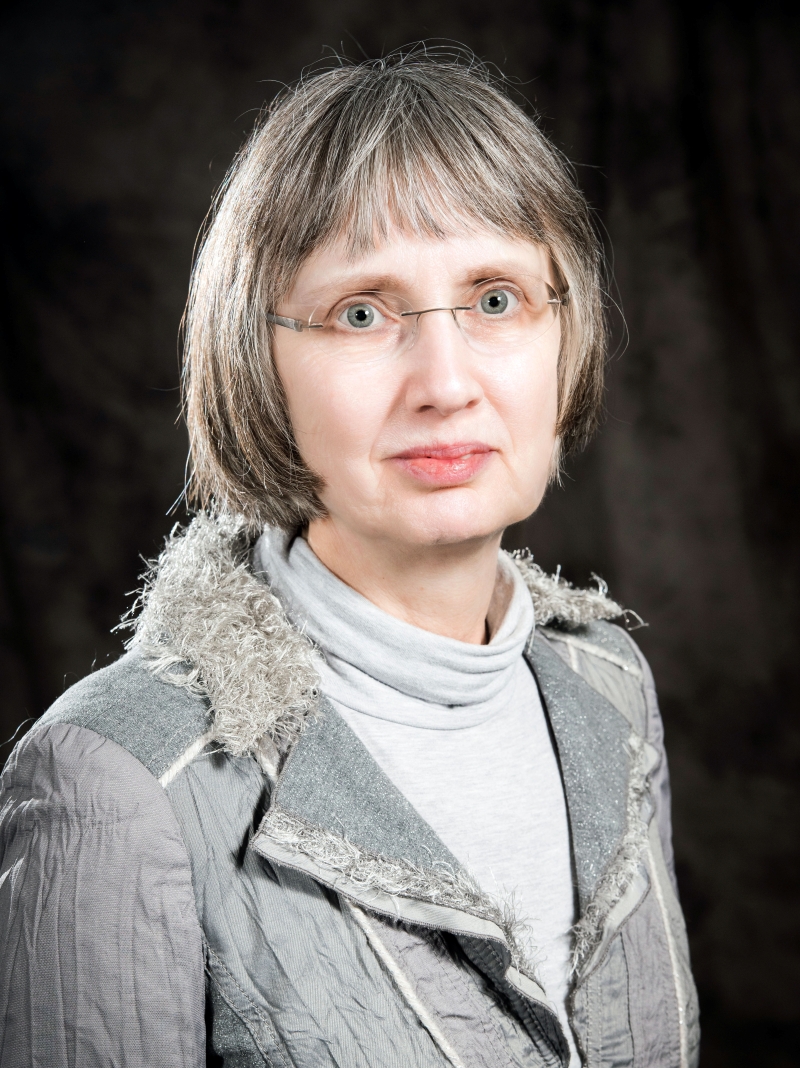
Gudrun Bühnemann is a professor in the Department of Asian Languages and Cultures at the University of Wisconsin-Madison, USA. She is involved with MANTRAMS as a senior researcher and affiliated with Task Forces 3 and 1.
Her research interests include mantras printed on or woven into cloth; maṇḍalas inscribed with mantras; mantras written repeatedly as a devotional practice (likhitajapa); mantras and dhāraṇīs inscribed on the façades of buildings; mantra monograms (kūṭākṣara); stotras as mantras and prescriptive Sanskrit texts detailing these practices.
Edda Sofie Schwarzkopf
Digital Humanities and Data Management Officer (DHDMO)
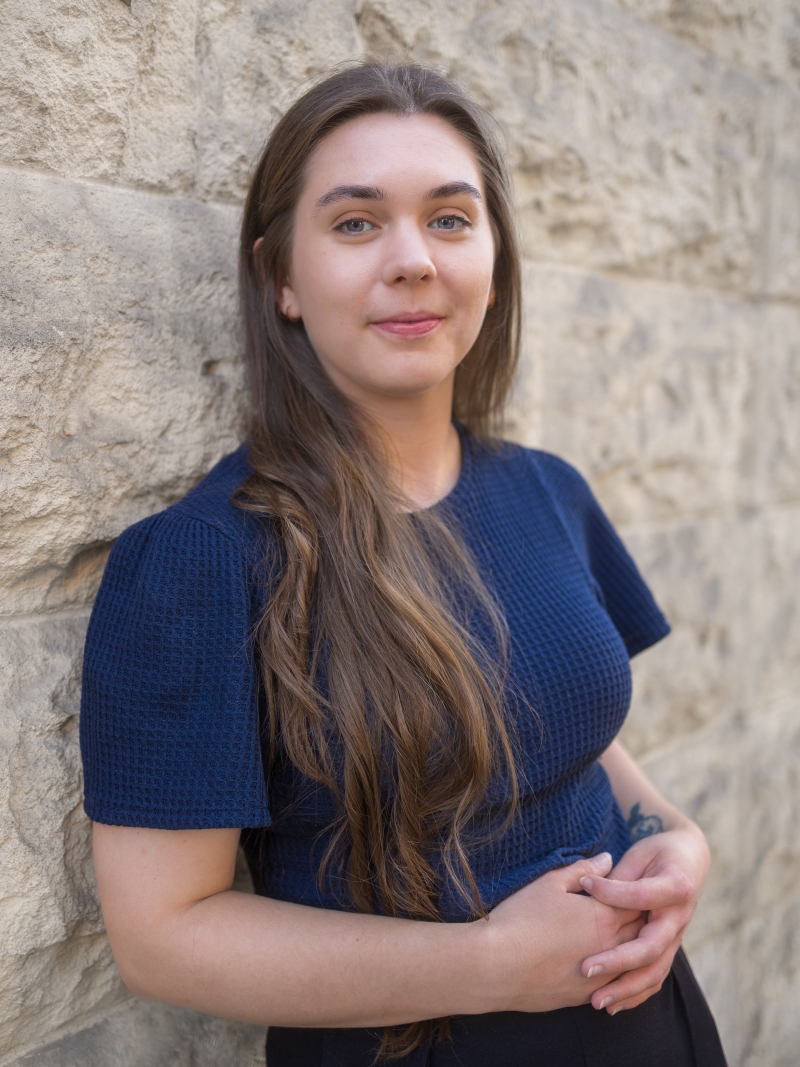
edda.schwarzkopf@
While most MANTRAMS team members are heading out into the world, Edda’s work is mostly concerned with holding down the technical fort at home. As Digital Humanities and Data Management Officer (DHDMO), she develops, maintains and mends the MANTRAMS Data Hub. She negotiates and collaborates with technicians, and transfers project materials and data to the OMnibus, an immersive multimedia website that will be a key deliverable of the project.
With a B. A. in Cultural Anthropology and Communication Science, and a M. Sc. in Digital Humanities, she is also in charge of navigating transparency and access with data protection and vulnerabilities as well as the digital sustainability of the project and data.
Darma Putra
PhD Researcher
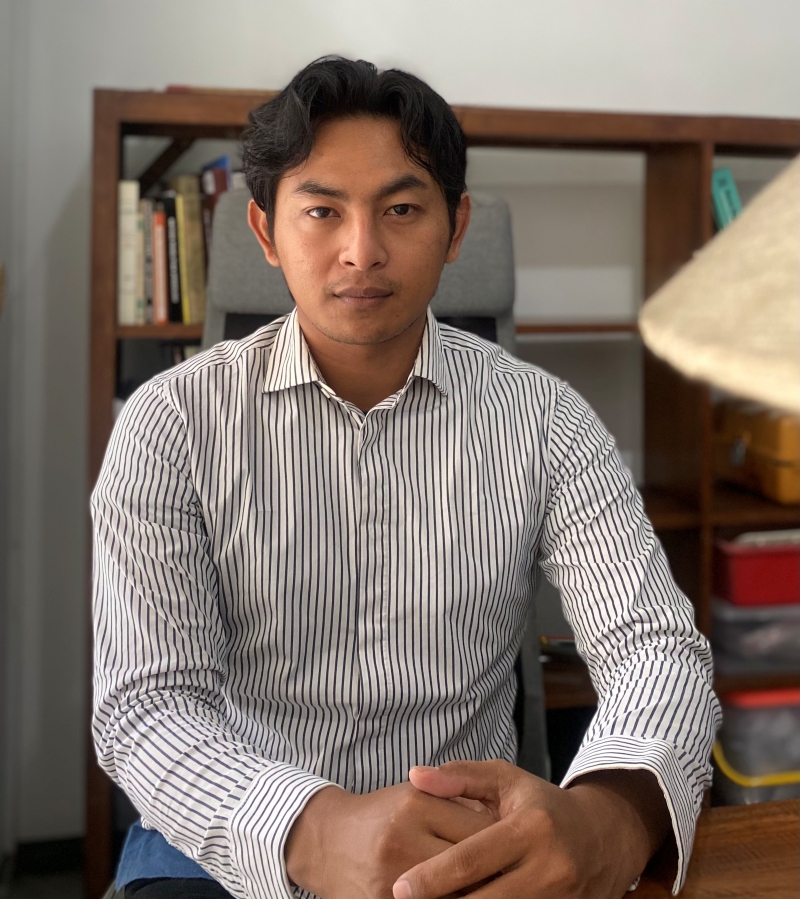
i-gde-agus.
I Gde Agus Darma Putra is a researcher and lecturer at Hindu Indonesia University (Bali, Indonesia), and currently a doctoral candidate at the École Pratique des Hautes Études (EPHE) under the MANTRAMS project. His dissertation, entitled ‘Unlocking Mystical Language: Mantras in Inscriptions and Transmitted Literature from the Indonesian Archipelago’, investigates a corpus of mantras attested in the region between the 9th and 16th centuries (mainly in Java, Bali, Sumatra, and Kalimantan) on the basis of epigraphic and manuscript sources, under the supervision of Andrea Acri and Arlo Griffiths. In addition to reconstructing the historical attestations and functions of these mantras, his research also examines their transmission and continuity within the living religious traditions of contemporary Bali.
Devyani Bhosale
PhD Researcher
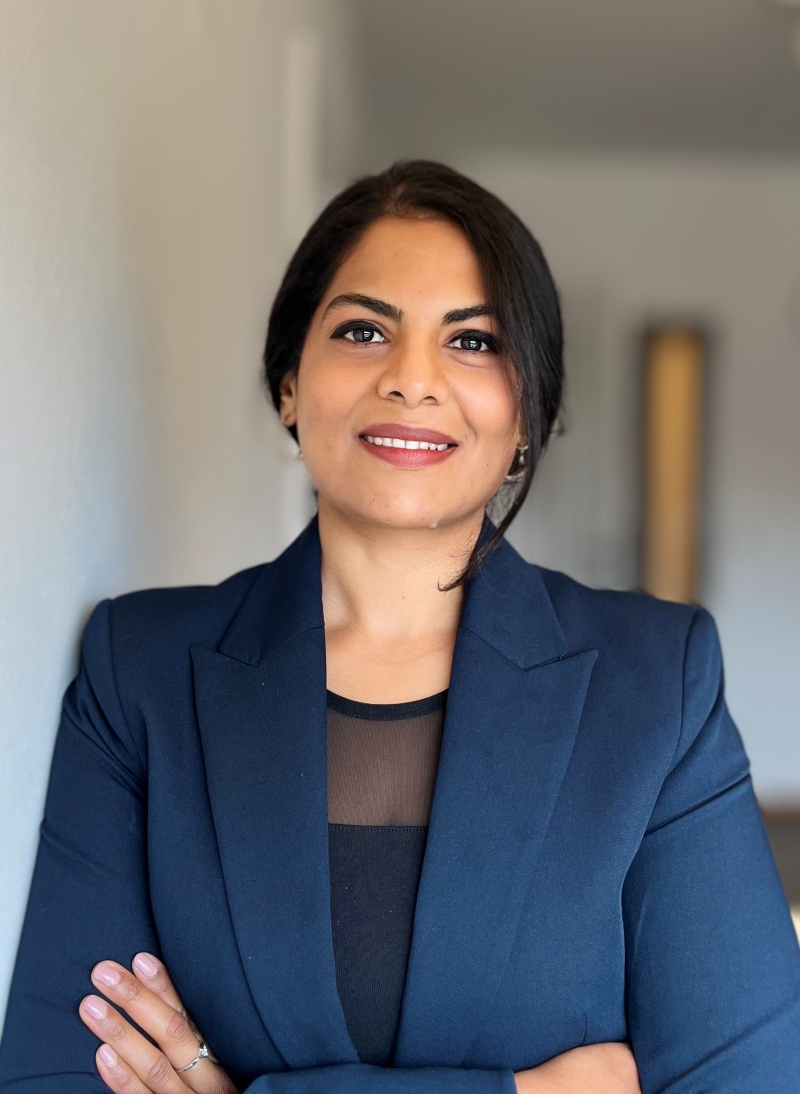
devyani.bhosale@
Devyani Bhosale joins MANTRAMS as a predoctoral researcher, bringing an interdisciplinary background in South Asian Studies with a focus on anthropology. She holds a Master’s in Development Environment Societies and History in South Asia from Heidelberg University, Germany. She also holds a second Master’s in Social Work in Dalit and Tribal Studies and Action from Tata Institute of Social Sciences, Mumbai, India.
Devyani’s research for MANTRAMS focuses on the role of sonic elements — such as mantras, chanting, greetings, and slogans — in the assertion of Dalit identity, visibility, and resistance in urban spaces of Western India. Devyani’s research aims to understand how these sonic practices shape and transform both physical and social landscapes creating social agency and reasserting identities. Additionally, by focusing on the marginalized voices of Dalit women, her research will also explore how sound, silence, and listening reclaim agency within male-dominated public soundscapes.
Mukul Menon
PhD Researcher
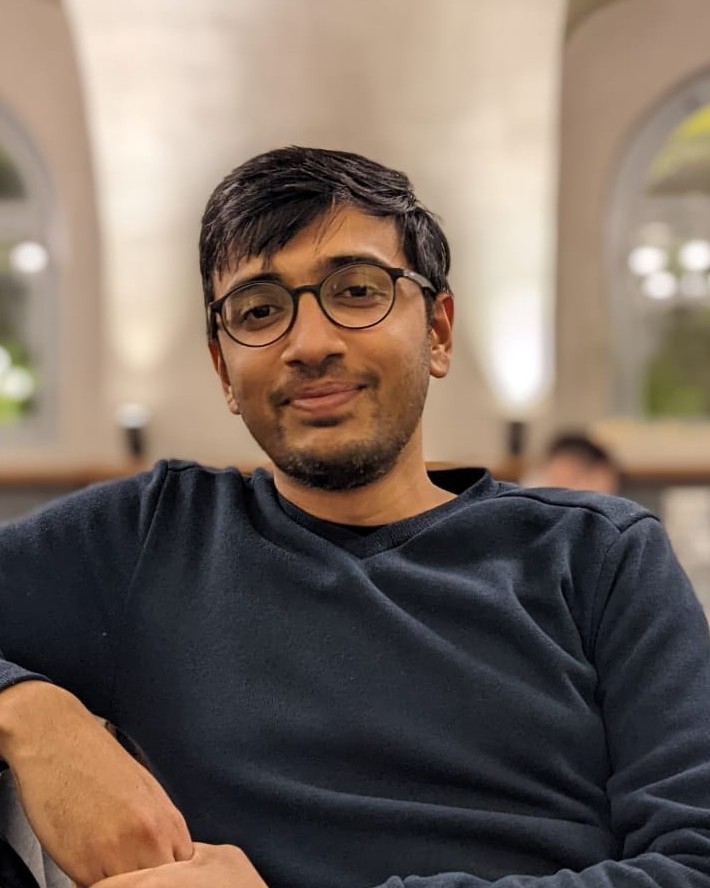
mukul.menon@
Mukul Menon joins MANTRAMS as a predoctoral researcher. His broad research interests lie at the intersections of South Asian music and auditory practices, religion, and the formation of publics and identities. His current project examines the sonic efficacies of domestic and congregational singing practices associated with Tuñcattŭ El̲uttacchan’s Adhyātmarāmāyaṇam Kiḷippāṭṭu in Kerala.
Mukul holds an MA in Media Arts Cultures from Aalborg University, University of Łódź, and Danube University Krems as part of the Erasmus Mundus Joint Masters Program. He also completed an MA in Global Media and Communications from the School of Oriental and African Studies, London, and a Bachelor’s degree in Urban Planning from the School of Planning and Architecture, Delhi. Before joining academia, he worked as a planner and filmmaker in India.
Marshia Khan
Project Administrator

With a background in International Food Business and Agricultural Economics, Marshia brings a unique blend of organizational expertise and creative problem-solving to the MANTRAMS project at the University of Tübingen. Drawing from her experience in project management, marketing, and event coordination, she seamlessly supports research activities, workshops, and outreach efforts.
Whether organizing events, managing budgets, or ensuring smooth communication across teams, Marshia thrives on making complex tasks run effortlessly. Passionate about connecting people and ideas, she helps drive the project forward with both precision and a fresh perspective.
Mahjabin Hossain Akhi
Research Assistant
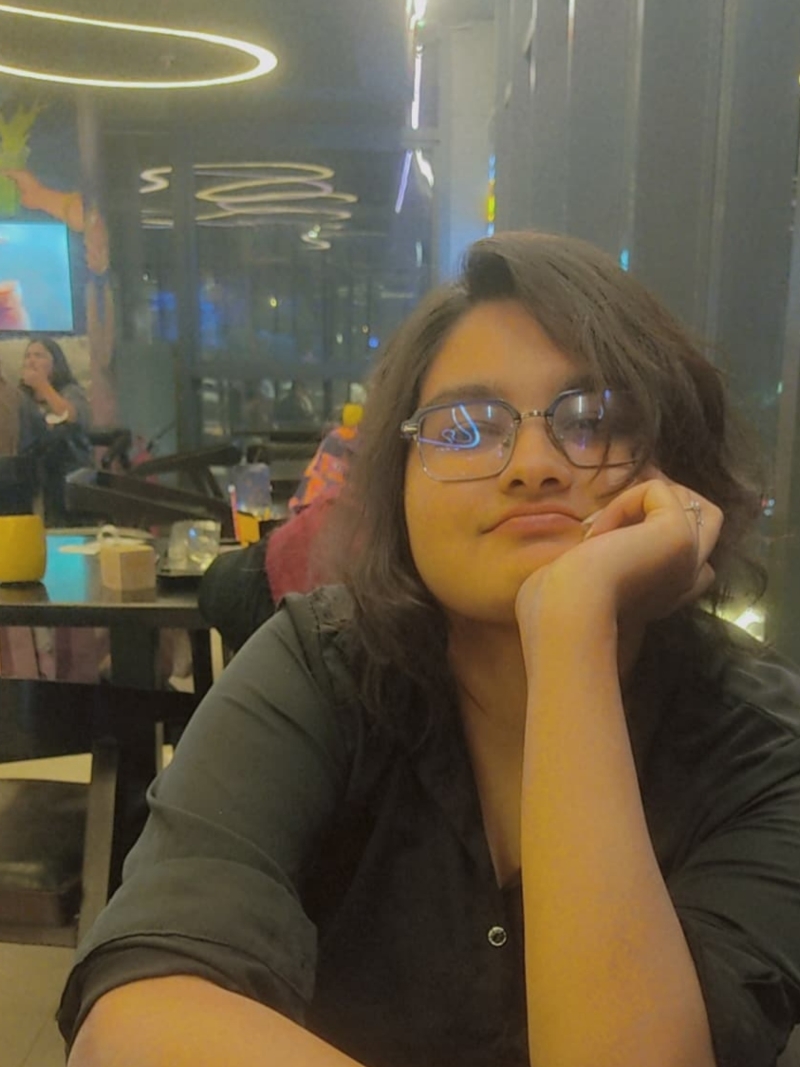
Mahjabin Hossain Akhi joins MANTRAMS as a research assistant for Task Force 2 based in Bangladesh, bringing a multidisciplinary background in media studies, identity politics, and visual storytelling. She holds a Master’s and Bachelor’s degree from Jahangirnagar University, where her academic work explored the intersections of globalization, digital media, and evolving identity formations.
At MANTRAMS, Akhi’s research focuses on the use of mantras in healing practices amongbauls, adivasi groups, kabiraj, and ojha practitioners in South Asia. Alongside her academic pursuits, Akhi has worked as a freelance illustrator for the past three years where she created multiple comics on topics regarding women’s issues, a practice that informs her engagement with visual culture and symbolic representation in both her research and creative work.
Geraldine Quénéhervé
Data Protection Officer (DPO) and Digital Humanities Consultant
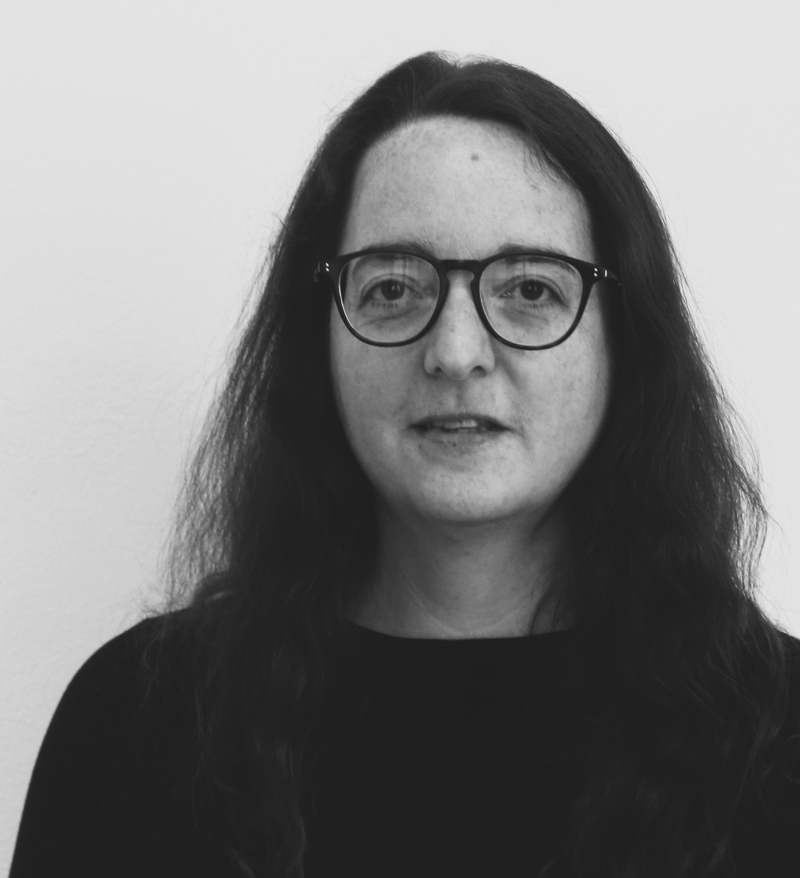
geraldine.queneherve@
Geraldine Quénéhervé is a member of the Digital Humanities Center (DHC) at the University of Tübingen. The DHC supports the MANTRAMS project in areas such as the data life cycle, research data management, data management planning, the development of digital infrastructure, and data archiving. In addition to this, Geraldine also serves as the Data Protection Officer (DPO) for the MANTRAMS project. She handles all inquiries with care and confidentiality, so please don’t hesitate to reach out with any concerns!
Geraldine’s academic background is in geomorphology and geodata analysis, with a focus on arid and semi-arid regions in Eastern Africa and the Near East. In her current role, she integrates geo(spatial) technologies into projects in the fields of cultural, historical, and social research.
Steve Kaminski
IT Administrator

steve.kaminski@
Steve Kaminski joins MANTRAMS as a technical assistant to provide support for the project’s digital infrastructure and data management systems. Working closely with the project’s Digital Humanities and Data Management Officer (DHDMO), he ensures the reliable setup, configuration and maintenance of web services that support the project’s research activities and data workflows.
With a background in information systems for research data management at the University of Tübingen, Steve specializes in the technical implementation and operational maintenance of digital platforms. His responsibilities include configuring and troubleshooting web services, managing server infrastructure, ensuring system security and performance, and providing technical support for data ingestion and processing pipelines that feed into the MANTRAMS Data Hub.
Kanika Pruthi
PhD Researcher

Kanika Pruthi joins MANTRAMS as a predoctoral researcher, bringing extensive experience in art history, project management, and cultural research. She holds a Master’s degree in Art History from the National Museum Institute in New Delhi and a Graduate Diploma in Art Business from Sotheby’s Institute of Art in New York. Her professional journey encompasses various roles in the art and culture sector, including research, archiving, curatorial development and project management, with a specialization in South Asian art and cultural practices. She has worked with public and private museums and collections and heritage focused projects, to create and manage archives, exhibitions and public outreach programs.
Kanika’s research for MANTRAMS focuses on the figure of Hanumān in North India in the 21st century. She explores this phenomenon through Visual Studies and Digital Anthropology.
Lucy May Constantini
Postdoctoral Researcher

lucy.may.constantini@
Lucy May Constantini joins MANTRAMS as a postdoctoral researcher, bringing a rich interdisciplinary background somatic methodologies in ethnography, performance studies, and philology, with a regional specialisation in Kerala, South India. She completed her PhD at The Open University, where her research focused on kaḷarippayaṟṟ ̆ , a South Indian martial art, exploring its embodied practices, ritual contexts, and material culture.
As part of MANTRAMS, Lucy will investigate the materiality of mantra practices in Kerala, focusing on the interplay between aural, somatic, and visual senses in the transmission of mantras. Her research explores how mantras, as embodied processes, maintain or transgress social and cosmic hierarchies, and how they are expressed through various material objects and practices, from sacred amulets to ritual performances.
Prema Goet
PhD Researcher

Prema Goet joins MANTRAMS as a predoctoral researcher, bringing a wealth of interdisciplinary expertise in South Asian Studies. He holds a Master’s degree in Traditions of Yoga and Meditation from the School of Oriental and African Studies (SOAS), University of London, where his thesis explored the themes of reality and magic in the Bhāgavata Purāṇa. Prema also holds a Bachelor of Arts in South Asian Studies and Sanskrit from SOAS, with a year of study in Pune, India. He has also engaged with these topics in relation to film, photography and media as well as in archival and curatorial work.
Sahishnu Bhattacharyya
PhD Researcher
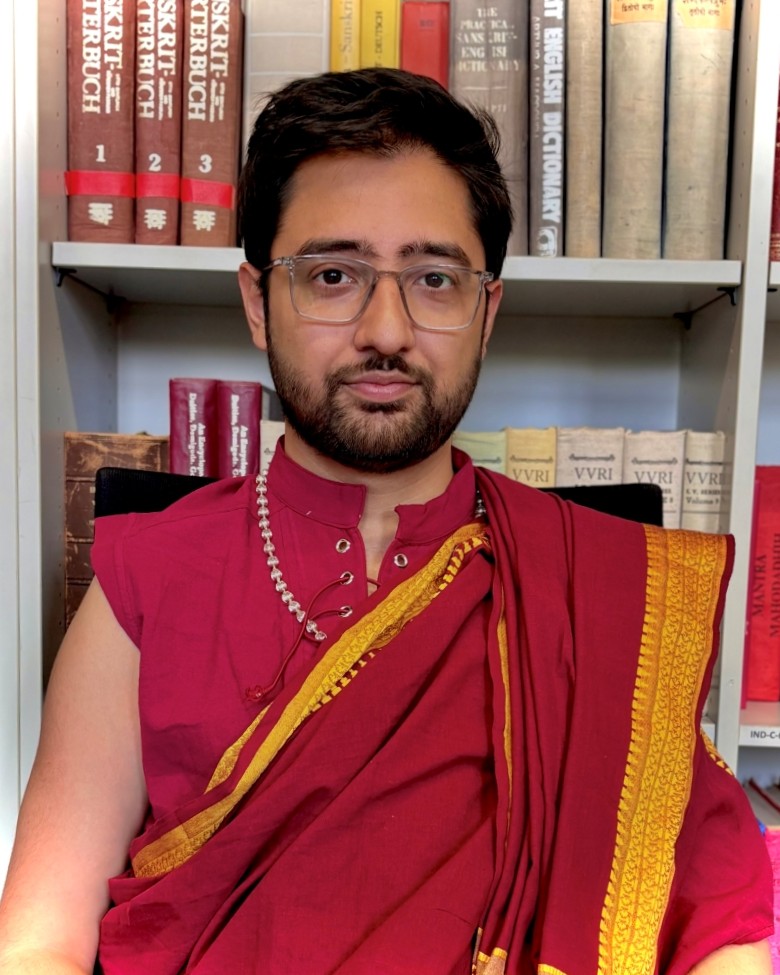
sahon.bhatta
Acharya Sahon “Sahishnu” Bhattacharyya joins MANTRAMS as a predoctoral researcher, bringing a rich interdisciplinary background in cognitive science, philosophy, and anthropology. He holds a Master of Science in Cognitive Science (Philosophy and Neuroscience) from the University of Osnabrück, Germany, and a Bachelor of Science in Computer Science from the University of Calcutta, India. He is traditionally trained in Hindu ritual as a purohita (priest) and is also a sadhaka (practitioner) of eastern Indian tantra traditions.
Sahishnu’s research for MANTRAMS will focus on the material dimensions of mantras in contemporary South Asian religious practices. His project aims to study how mantras are inscribed, produced, and used across various material mediums in everyday religious life by combining ethnographic fieldwork, material observation, and comparative analysis.
Lea Stiller
Project Administrator

Lea Stiller supports the MANTRAMS team in Vienna with project administration and management, helping to coordinate research activities, events, and deliverables. She plays a key role in organizing workshops, managing budgets, preparing reports, and assisting with outreach efforts.
As a Master’s student in the Languages and Cultures of South Asia program, Lea’s academic interest lies in the intersection of mantra and yoga. She combines her administrative expertise with a deep passion for the project’s themes, contributing to its success on both practical and intellectual levels.
Piyush Kukrety
Research Assistant
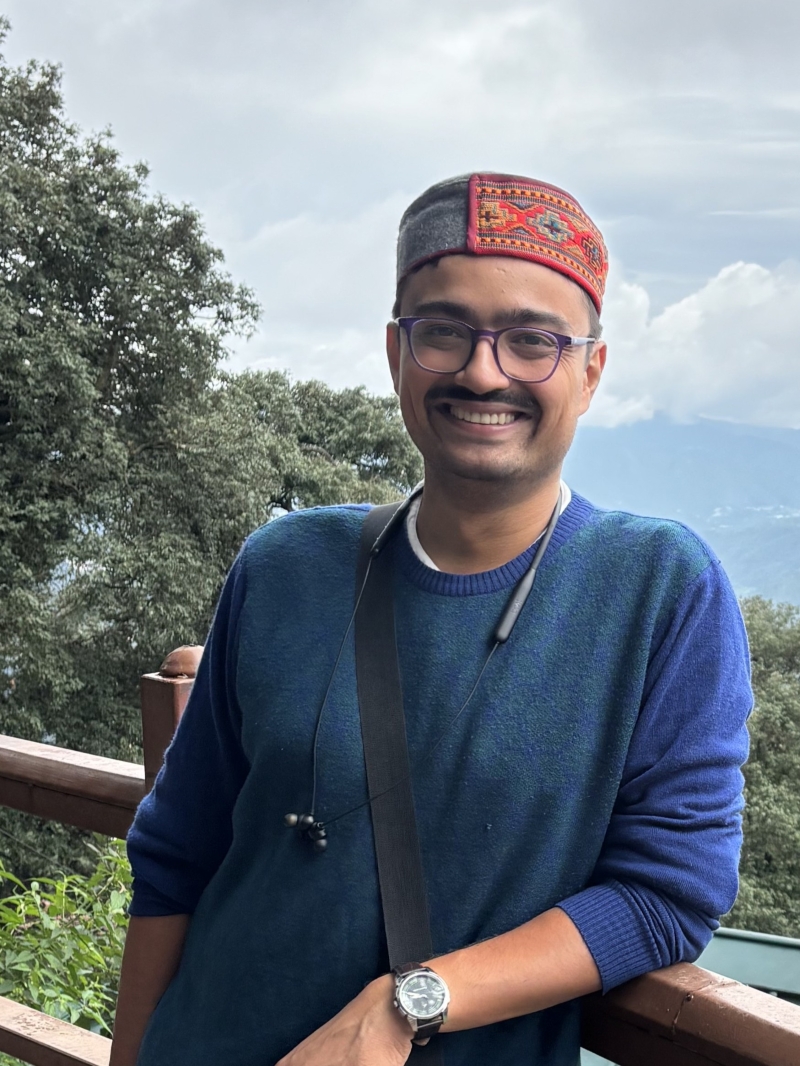
Piyush Kukrety holds a postgraduate degree in Comparative Religion from Jamia Millia Islamia, New Delhi. He currently teaches Sociology, Hinduism and History for Cambridge AS and A level learners. He is based out of India, and is inclined towards exploring the diverse ways in which religiosity is expressed in Indian religious traditions. He is particularly interested in understanding the historical evolution of religious expression and how the nature of objects associated with religiosity has evolved over time.
Piyush is passionate about floral traditions in Hinduism, and avidly pursues learning garlanding techniques from various parts of the Indian subcontinent. By extension, he is a keen observer of Alankara (adornement) practices in various Indian devotional-spiritual contexts. He also fervently pursues floor art traditions such as Kolam, Alpona and Aripan and seeks to understand the embedded symbolism in their motifs.
